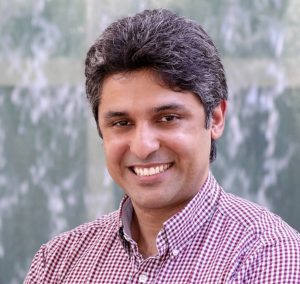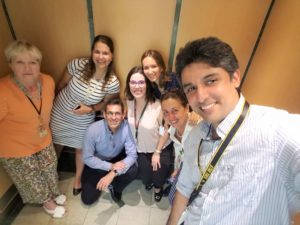Research Staff Profile: Fahd Qadir
 |
Fahd Qadir High-Resolution Characterization of Human Ductal Progenitor Cells and their Regeneration Potential
|
►Where are you from originally, and where did you go to school?
I am originally from Pakistan and where I completed Veterinary Medicine. I additionally completed a Masters in Applied Biosciences from the National University of Sciences and Technology, in the capital city of Islamabad.
►What is your current position?
I currently hold a Fulbright pre-doctoral fellowship. I am working as a Graduate Student in Dr. Juan Dominguez-Bendala’s lab, at the Diabetes Research Institute at the University of Miami, Miller School of Medicine.
►Why did you decide to become a researcher?
I am intrigued by mammalian development. How molecular circuits are hardwired into the spatio-temporal patterning and organization of organ development, is fascinating to me. This stems from a broader curiosity of nature derived from books I enjoyed reading as a teenager, authored by the naturalist and conservationist Gerald Durrell.
►What is the “Big Picture” of what you study?
Our lab is interested in looking at molecular signatures of individual human ductal cells. Our lab has identified a quiescent progenitor-like cell within the ductal network of the adult human pancreas. These cells when provided the correct stimuli, have the ability to proliferate and differentiate into exocrine and endocrine compartments of the pancreas. We are interested at looking into the spectrum of molecular circuitry in human pancreatic ductal cells.
►What is your favorite aspect of your research?
Single cell RNA sequencing (scRNAseq) is an exciting new molecular tool which has become popular due to cheaper and commercially available single-cell processing systems. Due to this, we have been able to incorporate scRNAseq into our HIRN HPAC research project. Being able to look at the transcriptional ‘signature’ of a single cell is the most exciting facet of my dissertation and current research.
► What do you hope to achieve with your research?
Our studies will provide information on heterogeneity within an individual’s ductal architecture as well as across different individuals. This is relevant in the context of personalized regenerative therapies for Type 1 Diabetes.
|
► What groups are you involved with? American Association for the Advancement of Science & American Diabetes Association ►When not in the lab what are your favorite hobbies/activities? When not in the lab I enjoy spending time with family, cooking, hiking, attending Star Trek conventions, reading and going to the beach.
|
|


